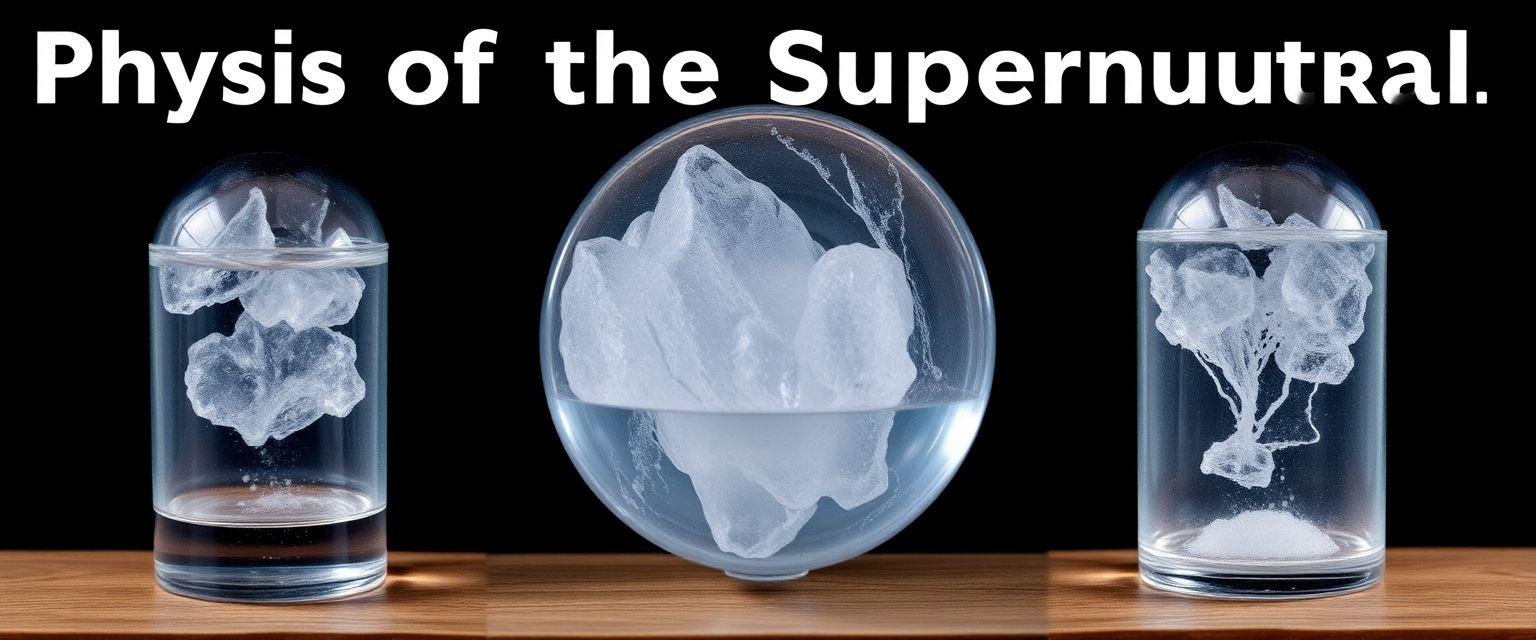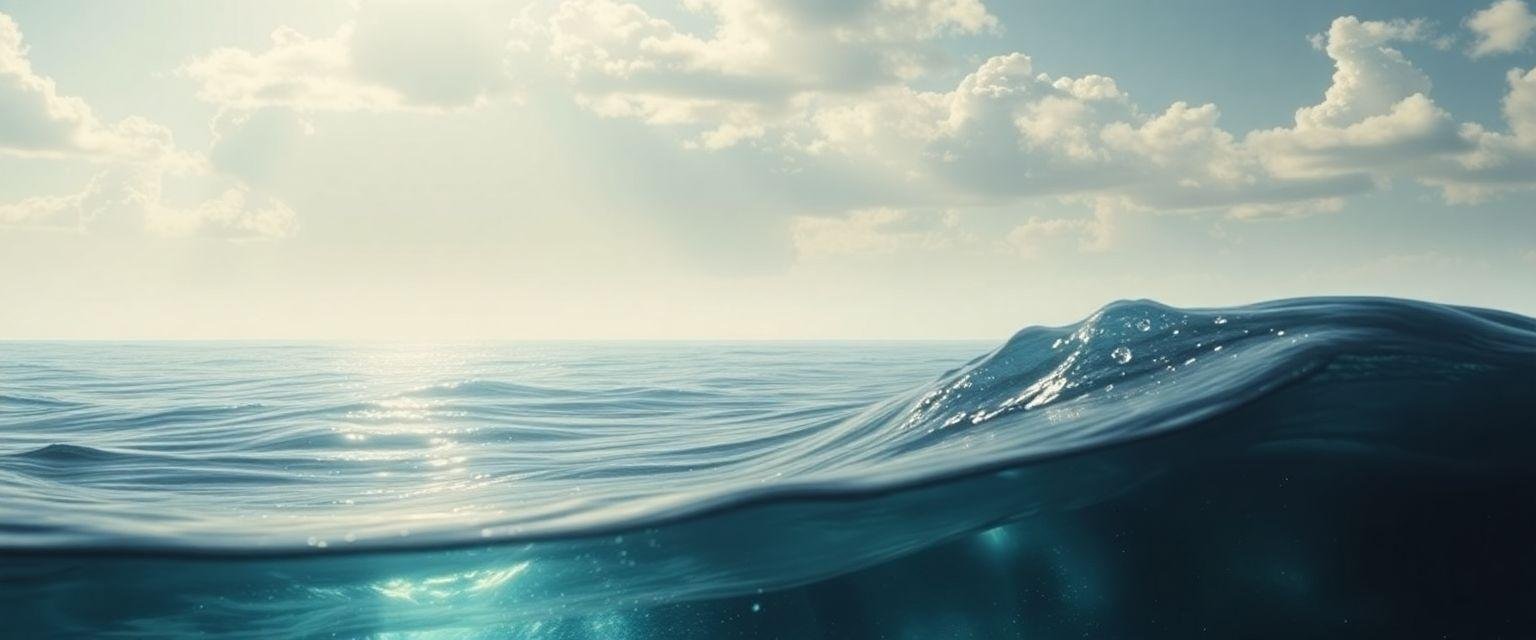The Hidden Power of Water
Imagine for a moment, if the water you drink, bathe in, and swim through could actually “feel” and “respond” to the world around it. Sounds like a plot twist from a science fiction novel, doesn’t it? Yet, this idea took a fascinating turn when Dr. Masaru Emoto, a Japanese researcher, claimed to have found evidence that water could respond to external stimuli, such as words and music, by changing its crystalline structure. His experiments suggested that water might, in some way, be a living entity. But could this be more than just a thin white lie? Could there be deeper truths hidden in the nature of water, something that connects it to a realm beyond the physical?
The question that lingers is: What if water, the very essence of life, holds secrets that challenge our understanding of the natural world?

Water is a Living Entity
Water, the fundamental building block of life, has always fascinated scientists and philosophers alike. Dr. Masaru Emoto’s experiments, which began in 1994, shook the scientific community with their audacious claims. Emoto believed that water could “feel” and react to human consciousness. He exposed water samples to different words, music, and prayers, then froze them to observe the resulting crystals under a microscope. The results? Water exposed to positive stimuli formed beautiful, intricate crystals, while negative stimuli resulted in chaotic, malformed structures.
The Japanese Experiment with Words on Water
The most famous of Emoto’s experiments involved labeling water containers with words such as “love,” “thank you,” and “hate.” The water labeled with positive words supposedly formed aesthetically pleasing crystals, while that with negative words appeared disordered. This seemingly simple experiment opened a floodgate of questions: Could our thoughts and emotions have a tangible impact on the physical world? Is water a conduit for consciousness, bridging the gap between the physical and the metaphysical?
Emoto’s work, while controversial, has not been without its supporters. His findings have been embraced by those intrigued by the physics of the supernatural, suggesting a connection between consciousness and the physical properties of water. However, the scientific community remains divided. Critics argue that Emoto’s methods lacked scientific rigor, citing issues like lack of control groups, potential bias, and the inability to replicate results under controlled conditions.

Historical and Cultural Perspectives on Water
Throughout history, water has been revered not just as a life-sustaining resource but also as a spiritual symbol. In many cultures, water represents purity, transformation, and healing. The notion that water holds more than just physical properties is not new. Indigenous cultures worldwide have long believed in water’s spiritual essence, treating it with respect and reverence.
In traditional Japanese Shinto beliefs, water is considered sacred, a cleanser of impurities, both physical and spiritual. This cultural context potentially influenced Emoto’s perspective and the reception of his work in Japan. Could these ancient beliefs hold kernels of truth that modern science is only beginning to uncover?

Scientific Insights and Criticisms
From a scientific standpoint, Emoto’s experiments tiptoe along the edge of what’s accepted and what’s considered pseudoscience. While the notion of water as a living entity is tantalizing, it challenges deep-seated scientific principles. The idea that human emotions can influence water’s molecular structure lacks empirical support, as the scientific method demands reproducibility and control.
However, science has not fully explored water’s mysteries. For example, the unique properties of water, such as its anomalous expansion upon freezing and its capacity to dissolve more substances than any other liquid, suggest that water may indeed have unexplored capacities. Some researchers have posited that water could store information in its structure, much like a computer, though these ideas remain speculative and require further investigation.

Thought-Provoking Questions
- Could the beliefs of ancient cultures regarding water’s spiritual significance hold more truth than modern science acknowledges?
- If water can indeed respond to human emotions, what implications does this have for how we interact with water in our daily lives?
- How might the unresolved mysteries of water’s properties impact our understanding of life and consciousness?
A Closer Look at Emoto’s Critics and Supporters
Emoto’s research has garnered both ardent supporters and vocal critics. Supporters hail his work as groundbreaking, suggesting it offers a new way of understanding the interconnectedness of nature and human consciousness. They argue that even if the specific methods were flawed, the overarching concept warrants deeper exploration. This perspective aligns with holistic and integrative approaches to science, which value subjective experience alongside objective data.
On the other hand, critics like scientists and skeptics have dismissed Emoto’s findings as pseudoscience, emphasizing the lack of rigorous methodology and repeatability. They point out that his experiments were not conducted under double-blind conditions, leaving room for bias and manipulation. Despite these criticisms, Emoto’s work continues to inspire, pushing the boundaries of what we consider possible.

The Future of Water Research
As we look to the future, the study of water stands at a crossroad between conventional science and the unknown. The potential for water to serve as a bridge between physical and spiritual realms remains a captivating prospect. Future research could delve deeper into water’s molecular structure, exploring its capacity to hold information or respond to external stimuli in novel ways.
Advancements in technology and interdisciplinary research may one day provide answers to these lingering questions. The quest to understand water’s true nature is not merely a scientific endeavor; it’s a journey into the heart of what it means to be alive and connected to the universe around us.

Conclusion
The idea that water might be a living entity, capable of responding to consciousness, remains a tantalizing possibility that straddles the line between science and spirituality. Dr. Masaru Emoto’s experiments, while controversial, have sparked a broader conversation about the nature of water and its potential role in our understanding of life. Whether you consider his work a thin white lie or a profound insight into the nature of reality, it challenges us to rethink our relationship with the natural world.
In embracing the mysteries of water, we may find ourselves at the cusp of redefining our understanding of consciousness, life, and the universe itself. As we continue to explore these frontiers, let us remain open to the possibilities that lie beyond our current knowledge, for it is in the unknown that true discovery awaits.
For more insights on topics that blend science and the supernatural, visit Thin White Lies.

For further reading on the intersection of science and spirituality, explore our sitemap here.
Answers To Common Questions
Q.What is the Japanese experiment with words on water?
A.The experiment studies how words affect water’s molecular structure.
Q.Who conducted the Japanese experiment with words on water?
A.Dr. Masaru Emoto, a Japanese researcher, conducted this experiment.
Q.How does the experiment measure the effects of words on water?
A.The experiment uses photographs of water crystals under different words.
Q.What were the findings of the Japanese experiment on water?
A.The findings suggest that positive words create beautiful water crystals.
Q.Why do some skeptics doubt the Japanese water experiment’s validity?
A.Skeptics argue the experiment lacks scientific controls and reproducibility.
Q.How can I apply the findings of this experiment in daily life?
A.You can use positive language around water or while drinking it daily.







